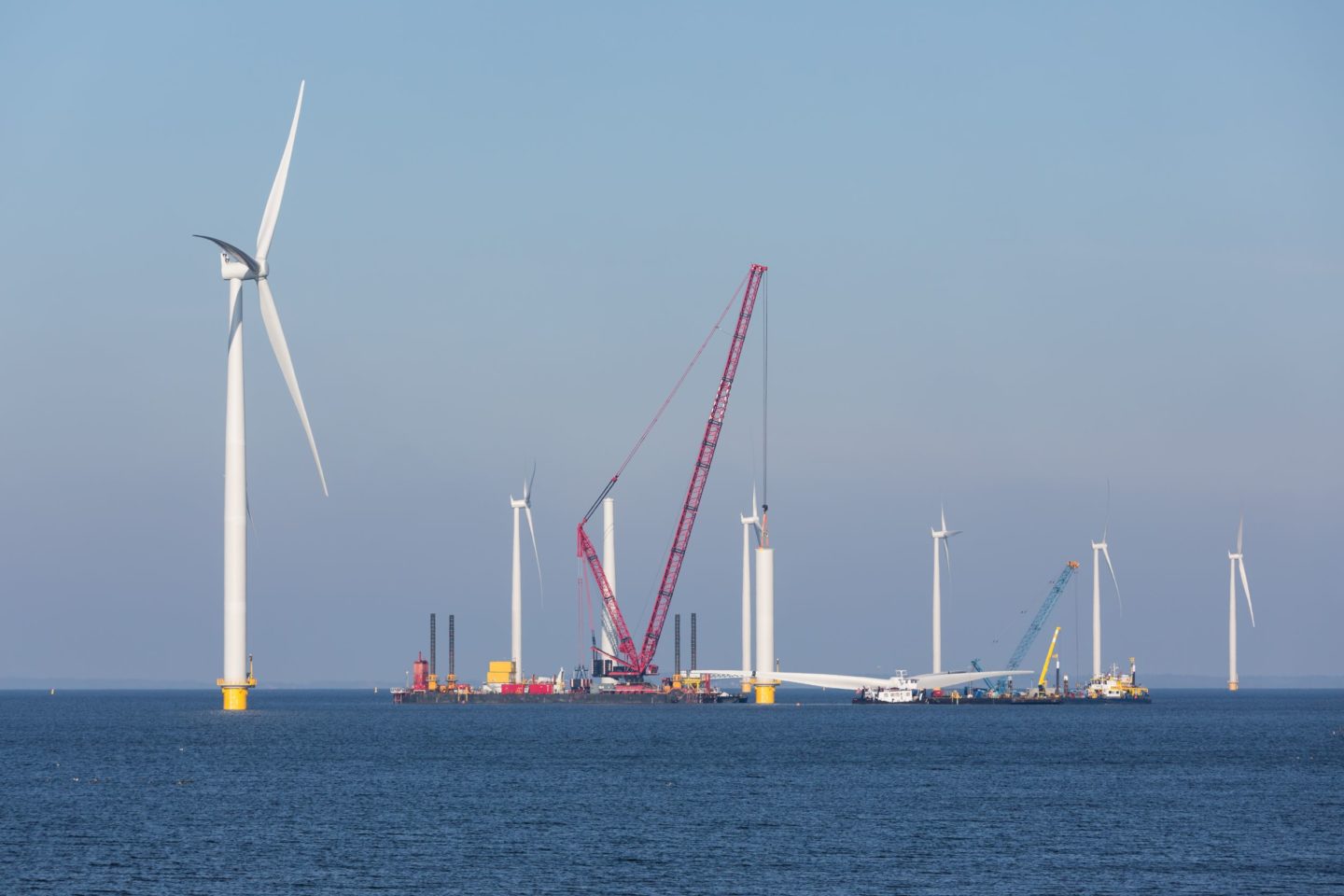
Don’t believe the hype: Making good use of a blackout
The Spanish blackout of April 2025 is an opportunity to strengthen electricity systems that have higher shares of renewables and should not be used as an excuse to slow down the energy...

by Julia Binder Published May 6, 2022 in Sustainability • 5 min read
The latest surge in oil and gas prices driven by Russia’s assault on Ukraine and the West’s response will have thrown energy costs into sharper relief for most businesses. Outside the most energy-intensive industries, the cost of power has not typically been on top of the corporate agenda.
But high oil prices are already denting the profitability of the largest industrial and consumer goods companies, from freight carriers to toymakers, even as they raise prices. It comes on top of last year’s tidal-wave of costs from supply chain logjams to labor shortages. This has created problems for the global economy, with growth forecasts being slashed.
Governments have eased pressures on vulnerable households, but businesses have been left to fend for themselves. The first point of call for corporations should be to cut energy costs, which could support the decarbonization effort. Energy efficiency is one of the most powerful tools for fighting climate change, given that buildings account for nearly 40% of global greenhouse gas emissions.
The 2015 Paris Climate Agreement led to a wave of net-zero commitments from boardrooms, yet companies are not walking the talk. A report last year from the International Energy Agency (IEA) suggests that companies — which are among the worst energy gluttons and polluters — have not yet grasped the opportunities to reduce their carbon footprint by improving the efficiency of appliances and equipment, as well as buildings, transport and production.
The incentive to slash energy use has been boosted by the Ukraine war, as power bills have soared because of surging gas prices. Gas climbed as much 20% higher last week after Gazprom, Russia’s state-owned energy corporation, halted supplies to Poland and Bulgaria. Prices are more than six times higher than a year ago.
Brent, the international oil benchmark, hit around $109 this week after the European Commission proposed banning all imports of Russian crude oil. Prices were as high as $139 immediately after the invasion of Ukraine, and they are still about two-thirds above their level at this point last year. This has heaped yet more pressure onto metal manufacturers, transport companies, carmakers, fertilizer and chemical groups.

The energy supply shortages have caught many companies on the wrong foot, and underscored the need for robust contingency plans to deal with energy risks and buffer against future power disruption. Indeed, the 959 leaders in business, government and academia surveyed last year by the World Economic Forum rated geopolitical confrontation as only the 10th most severe global risk for 2022 – reflecting a costly misjudgement of the unstable geopolitical situation.
Companies can no longer afford to ignore geopolitical risk. Many are trying to boost supply from cleaner sources of energy, such as biomethane production from food waste and manure, as well as wind and solar power. These measures could have a substantial impact in the longer term, but renewables cannot replace fossil fuels in the short term. There are lengthy lead times involved in developing new green infrastructure, due to the planning and approval process as well as supply chain bottlenecks.
Some companies have taken to generating their own energy, installing offshore windmills or solar power plants, as they look to reduce their energy dependency on third parties. The reliability of supply has been shaken by the large number of energy companies going bust because of rising wholesale prices, leaving business customers dependent on market regulators to ensure power supplies.

Faced with soaring gas prices, companies may be tempted to turn to even more emissions-intensive fuels such as coal, the dirtiest of them all, because it’s cheaper to burn to produce electricity, even when accounting for carbon permits. While climate and security issues are pushing European governments to reduce their dependence on fossil fuels, coal is still dominant in Africa and Asia and especially in China, the world’s largest carbon emitter.
Yet pollution is a negative externality. Companies should consider not only the direct cost from fuel but the indirect costs that stem from the risks of ignoring the demand for decarbonization. While a step back to fossil fuels may appear as a short-term solution in the face of risk and uncertainty, it is a high-risk strategy in light of stricter climate regulation, increasing carbon prices, and ESG-savvy investors.
The world’s biggest economies are adopting targets for net-zero emissions, as countries race to cut fossil fuels and boost clean energy. Heavy polluters are already required to buy carbon allowances in the EU. Although the Ukraine war initially lowered carbon prices, the increased use of coal could boost the need for credits, forcing decarbonization higher up the corporate agenda.
Companies may see this as an economic opportunity. There are obvious financial gains from cost-effective measures to cut carbon. Taking this further, some companies are shifting away from “take-make-dispose” models of production and consumption and turning their waste into valuable or reusable resources — a circular economy. A further commercial incentive comes from consumers, with surveys showing a majority in North America, Asia and Europe prefer sustainable products and services.
Further still, investors are getting more serious about sustainability, and want to see companies taking meaningful steps to reduce their emissions. And senior management compensation is increasingly being linked to such non-financial targets. So it really is time for business leaders to make energy a high priority. Decarbonizing is not a cost to be managed, it is an investment that could make your organization more resilient, responsible and profitable.
Another way to slash emissions and operating costs would be to reduce office space in response to the rise of hybrid working, which gives companies more flexibility over their energy costs, if managed correctly. That, combined with an economic slowdown and higher energy prices reducing consumption, could lead to fewer emissions. But it may be followed by a rebound when the economy recovers.
While high energy prices are a major challenge for many businesses, the crisis is also creating new commercial opportunities, particularly for green energy start-ups and larger companies. BlackRock’s chief executive Larry Fink recently predicted a renewable “investment boom” as the Ukraine war forced countries to accelerate the green energy transition.
New technologies such as green hydrogen not only create new market opportunities, but could also support the transition to a net-zero economy. Similarly, there are big opportunities for “digital sustainability” firms that use digital technology to support sustainable business operations. This includes tech that helps companies assess and report their energy usage. This has the potential to optimize heating, ventilation and air conditioning, as well as to decrease energy usage and increase energy efficiency in operations.

Professor of Sustainable innovation and Business Transformation at IMD
Julia Binder, Professor of Sustainable Innovation and Business Transformation, is a renowned thought leader recognized on the 2022 Thinkers50 Radar list for her work at the intersection of sustainability and innovation. As Director of IMD’s Center for Sustainable and Inclusive Business, Binder is dedicated to leveraging IMD’s diverse expertise on sustainability topics to guide business leaders in discovering innovative solutions to contemporary challenges. At IMD, Binder serves as Program Director for Creating Value in the Circular Economy and teaches in key open programs including the Advanced Management Program (AMP), Transition to Business Leadership (TBL), TransformTech (TT), and Leading Sustainable Business Transformation (LSBT). She is involved in the school’s EMBA and MBA programs, and contributes to IMD’s custom programs, crafting transformative learning journeys for clients globally.

July 9, 2025 • by Cédric Philibert in Sustainability
The Spanish blackout of April 2025 is an opportunity to strengthen electricity systems that have higher shares of renewables and should not be used as an excuse to slow down the energy...

July 7, 2025 • by Julia Binder, Esther Salvi in Sustainability
Lindström found that expanding its business to Asia required overcoming cultural barriers as much as building new services and infrastructure while adapting itself to local needs. ...

June 16, 2025 • by Núria Ibáñez-García in Sustainability
Driving change in a system where progress can be slow and regulation is tight isn’t easy. But for Núria Ibáñez-García, sustainable transformation starts with steady influence, applied from within. ...

June 9, 2025 • by Julia Binder, Esther Salvi in Sustainability
Dr. Kiri Trier, the beauty giant’s regional sustainability chief, explains her drive to change customer habits and make cutting waste, refilling, and recycling part of their daily bathroom routine....
Explore first person business intelligence from top minds curated for a global executive audience